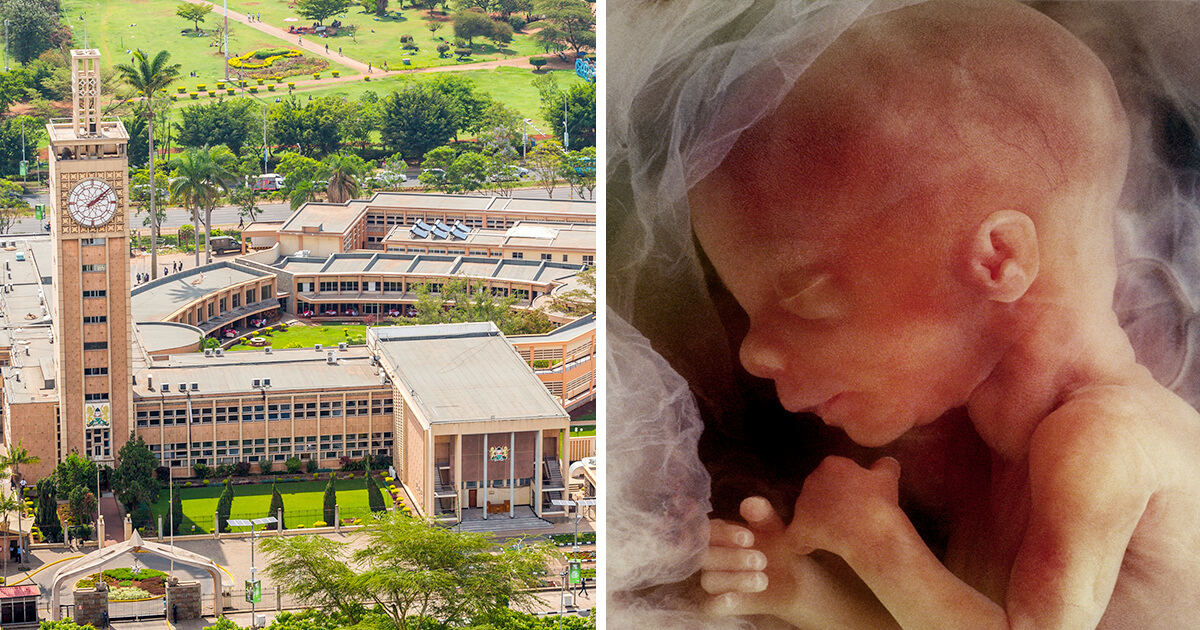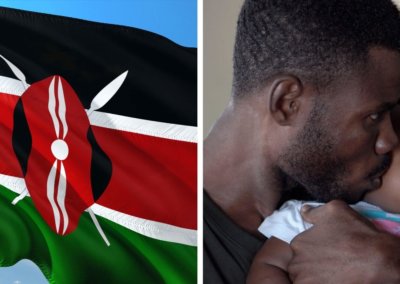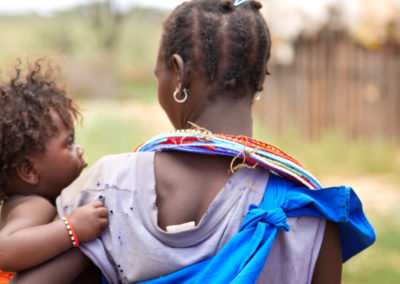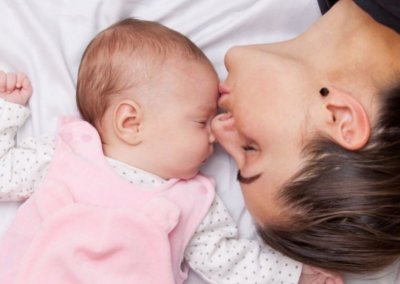A Bill backed by major international abortion organisations, including Ipas and Planned Parenthood Global, which would introduce abortion up to birth, is currently progressing through Kenya’s Senate.
If it progresses past a Third Reading, the 349 MPs which make up Kenya’s lower house will debate and vote on the Bill’s fate.
Abortion for any reason, on-demand, up to birth
The Termination of Pregnancy section of the Reproductive Healthcare Bill outlines that abortion would be available without a time limit on grounds that “the pregnancy would endanger the life or health of the mother”.
While this language appears to provide abortion on only narrow grounds, in practice it will likely allow for de facto abortion on demand to be available up to birth in Kenya through a broad interpretation of the term “health”.
International NGOs such as Ipas, who are backing this Bill, have used a legislation change model in a number of other countries where they have lobbied for a law change, which in practice introduces de facto abortion-on-demand.
This model involves firstly lobbying Governments to introduce new legislation with similar wording to that in the proposed Kenyan legislation. They have then placed themselves as key advisers on the roll-out of the new abortion service and associated standards and protocols across the country. In this position as a key adviser, they have then been involved with producing comprehensive guidance for the Government and healthcare providers which outlines that they must interpret language in the new legislation to allow de facto abortion-on-demand.
For example, this model can be seen in operation in Ghana. In the current guidance on providing abortion services in Ghana it is not hidden that Ipas has been involved in writing the guidance, with the foreword stating “This document has been put together by a team of national experts with technical assistance from Ipas and WHO, Geneva.“
The wording of the Ghanian legislation relating to abortion includes what appears to be similarly restrictive grounds for abortion “where the continuance of the pregnancy would involve risk to the life of the pregnant woman or injury to her physical or mental health”.
In the guidance, it specifically instructs healthcare professionals to take a very broad interpretation of what appears to be similar restrictive wording.
“Mental health refers to a state of emotional, psychological and social wellbeing and not merely the absence of disease in matters relating to mental function… No psychiatric assessment is required in order to obtain a legal abortion…. A woman’s social circumstances may be taken into account in assessing the current and future risks to her mental health.”
This guidance has in practice allowed de facto abortion-on-demand.
In Kenya, without a time limit in the proposed legislation, a similarly broad interpretation would allow de facto abortion-on-demand, up to birth.
Kiminini MP Chris Wamalwa has condemned the Bill for being “sponsored by [an] international organization”.
‘Every human being deserves the right to life’
Speaking against the Bill, outside Kenya’s parliament buildings in Nairobi on 25 June, the lawmaker said: “life begins at conception and every human being deserves the right to life.”
Chris Wamalwa has previously told ACI Africa: “The Bill must come to the National Assembly; we shall kill it there.”
Three-year-jail sentence for doctors who conscientiously object
The proposed legislation also introduces a three-year jail sentence for any health professional that conscientious objects to being involved with providing an abortion and does not want to be complicit in the abortion process by providing a referral onto another health professional who will provide an abortion.
In a country where polling shows large majorities oppose abortion, this provision in the legislation forcing doctors to be complicit in the abortion process could have a very wide negative impact, forcing many health professionals to act against their conscience, or for a likely large group of health professionals who do not wish to be complicit in the abortion process, this would mean they face jail time.
According to a 2014 poll, conducted by Ipsos Synovate, 87% of Kenyans do not support abortion on demand.
These attitudes are validated by another poll, conducted by Pew Research, which showed 82% of Kenyans believed abortion to be morally unacceptable.
Large cost to Kenyan Government
The Bill would also come at a large cost to Kenyan Government, as it specifically requires the outlay of national services providing ‘reproductive health care’ including abortion.
In addition to the financial cost, the Bill would place health services in Kenya, which are already operating under limited resources due to the coronavirus pandemic, under even more pressure at a time when they should be focused on saving lives.
In response to this pressure, and a call for more ventilators, the UK and Sweden dedicated more funding for abortion in Kenya and other African countries.
‘Ideological colonialism’
Pro-life campaigner, Ella Duru told Right To Life UK: “This is a brazen attempt by Western abortion organisations to impose abortion de facto on demand, up to birth on Kenya.
“To have these well-funded overseas organisations spending lots of money to try and force abortion on Kenya when 87% believe it is morally unacceptable is a form of ideological colonialism.
“Cash rich donors from the West continue to exploit their privilege and position to offer abortion and family planning ‘services’ which are contrary to the pro-life values held by a large majority of African people.
“The Kenyan constitution, in Article 26, makes it clear that life begins at conception and should be protected under the bill or rights.
“Given that this Bill would deny unborn babies the right to life right up to the point of birth, this appalling Bill must be defeated by MPs in the National Assembly.
“If you are Kenyan please contact your local representative and detail that, rather than bring clarity to the constitution, this extreme Bill will introduce an extreme abortion law that is not in the best interests of Kenyans and the unborn.”
Kenyan-born Ann Kioko, who has launched a petition against the Bill, has previously spoken out on how abortion is pushed on countries in the developing world. Last year, the campaigner told delegates at the UN’s Protecting Femininity and Human Dignity in Women’s Empowerment event:
“Contrary to what the negotiators of some countries argue here or… push on countries in the developing world, a young girl in a village like mine…does not need policies that prioritize abortion. … It is time we brought the women in the grassroots to the table. They will tell you they don’t need abortion … to be empowered…
“(Women) need fully equipped health centers, they need good schools, they need clothing, they need food on their tables! They need electricity. And they need to be imparted with proper skills so they can be good career women. … I keep looking forward to that day the UN and those who are speaking and working for the women of the world will get the priorities of the women at the grassroots correct.”











